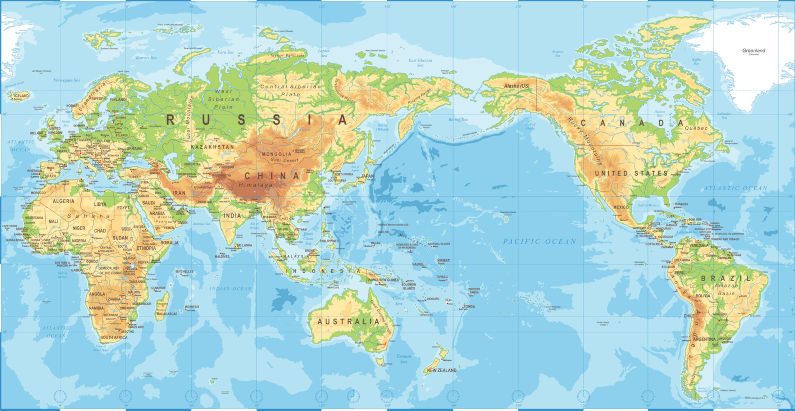Asia, America or independence: Australians have decided, will politicians listen?
March 15, 2024
A recent poll conducted by _The Guardian_ found that nearly twice as many people agreed with Paul Keating’s suggestion that Australia should be an independent ‘middle power’ in Asia, rather than an ally of the United States. Perhaps the electorate are smarter than some of our political class seem to think.
There really is something to be said for product differentiation. At a time when it’s difficult to tell the difference between the two major political parties, especially when it comes to foreign policy, voters are clearly attracted to credible alternatives.
A recent poll conducted by _The Guardian_ found that nearly twice as many people agreed with Paul Keating’s suggestion that Australia should be an independent ‘middle power’ in Asia, rather than an ally of the United States. And this is before the increasingly likely return of Donald Trump as president, of course.
Given that foreign policy is generally not considered to be a critical determinant of people’s voting intentions, perhaps it is wise not to read too much into such findings. It is difficult to imagine that many Australians spend their leisure time reading about middle power theory or have much idea what role the Association of Southeast Asian Nations plays in regional affairs.
Nevertheless, the fact that so many people have apparently lost confidence in the alliance and think that Australian policymakers ought to be considering other foreign policy options is an indictment of the conventional wisdom that prevails in Canberra’s strategic bubble.
The current consensus seems to be that Australia can do both: it’s possible to be a loyal ally of the US and an active partner in regional affairs, as the hosting of the recent ASEAN summit suggests. There are two problems with this idea, however.
First, it is entirely likely that the US will pursue policies that are at odds with the preferences of our neighbours. America’s continuing support for Israel’s demolition of Gaza is currently the most problematic illustration of this possibility. The unwillingness to join other middle powers like Canada and Sweden in restoring funding for the United Nations agency for Palestinian refugees (UNRWA), is indicative of Australia’s reluctance to do anything that is at odds with the US position.
Yet Indonesia and Malaysia are especially incensed by America’s continued willingness to supply Israel with the military hardware to continue a policy that looks increasingly like a genocidal massacre designed to drive Palestinians from their homeland. Australia’s tacit support for such policies confirms long-standing regional suspicions about its capacity to act independently.
To be fair to Australian policymakers, though, there’s a second reason that being a good regional partner is difficult: Southeast Asia’s institutional architecture is generally rather feeble and incapable of acting collectively. This is especially apparent when it comes to dealing with foreign policy issues such as China’s role in the South China Sea, for example. If ASEAN can’t agree a common position on something that directly impinges on the sovereignty of its members, then it’s not obvious what it really can do.
In such circumstances, it is easier to understand why most of Australia’s strategic elite fall back on familiar routines and friends, and agreements such as AUKUS. Yet Keating is right about this, too: the associated agreement to buy nuclear powered submarines really is ‘the worst deal of all time’, and not just because of the preposterous cost of what will be an obsolete technology when and if they are ever delivered. On the contrary, spending so much money to demonstrate Australian fealty to the US gives the lie to claims about strategic and foreign policy independence.
It doesn’t have to be this way. Unthinkable as it clearly is to Canberra’s cognoscenti, Australia really could be a truly independent state. Australia enjoys just about the most benign strategic circumstances in the world, being a long way from conflicts and having no obvious enemies. Not even China is planning to invade. Indeed, we could learn a lot from New Zealand which has long had a suitably modest defence budget with absolutely no deterioration in its overall security.
On the contrary, there’s a good case for saying that reduced defence spending not only has no impact on national security, but it may enhance any nation’s capacity to play a more influential role in international affairs. The standard-bearers of good international citizenship used to be the Scandinavian middle powers, before they, too, succumbed to the seemingly implacable pressures of changing geopolitical circumstances in the aftermath of Russia’s invasion of Ukraine.
No doubt many in Canberra will see this as vindication of their hard-headed realism. But what such thinking fails to recognise is geographical reality: we are not directly threatened by a neighbour, we’re remarkably self-reliant, and we consequently have the luxury of maximising the economic and strategic benefits that flow from such good fortune.
We really could play a much-needed exemplary, independent role in the region and even the world, perhaps. We might demonstrate the advantages of not mindlessly allying with more powerful states when we don’t need to; especially when our allies cannot be relied upon to act wisely or defend us come what may. As American policy under Biden in Afghanistan and Gaza demonstrates, even with a supposed ‘adult’ in charge, there is absolutely no guarantee that Australian and American goals and interests will coincide.
Even more consequentially, of course, if Trump does become the next president he and his advisors will be much better prepared than previously, and possibly much less inclined to live up to commitments to allies—even those that spare no expense to ingratiate themselves with their notional protectors. Much better to pursue real independence now while we still have some room for manoeuvre. Who knows, there may even be some electoral advantage in it. Perhaps the electorate are smarter than some of our political class seem to think.


